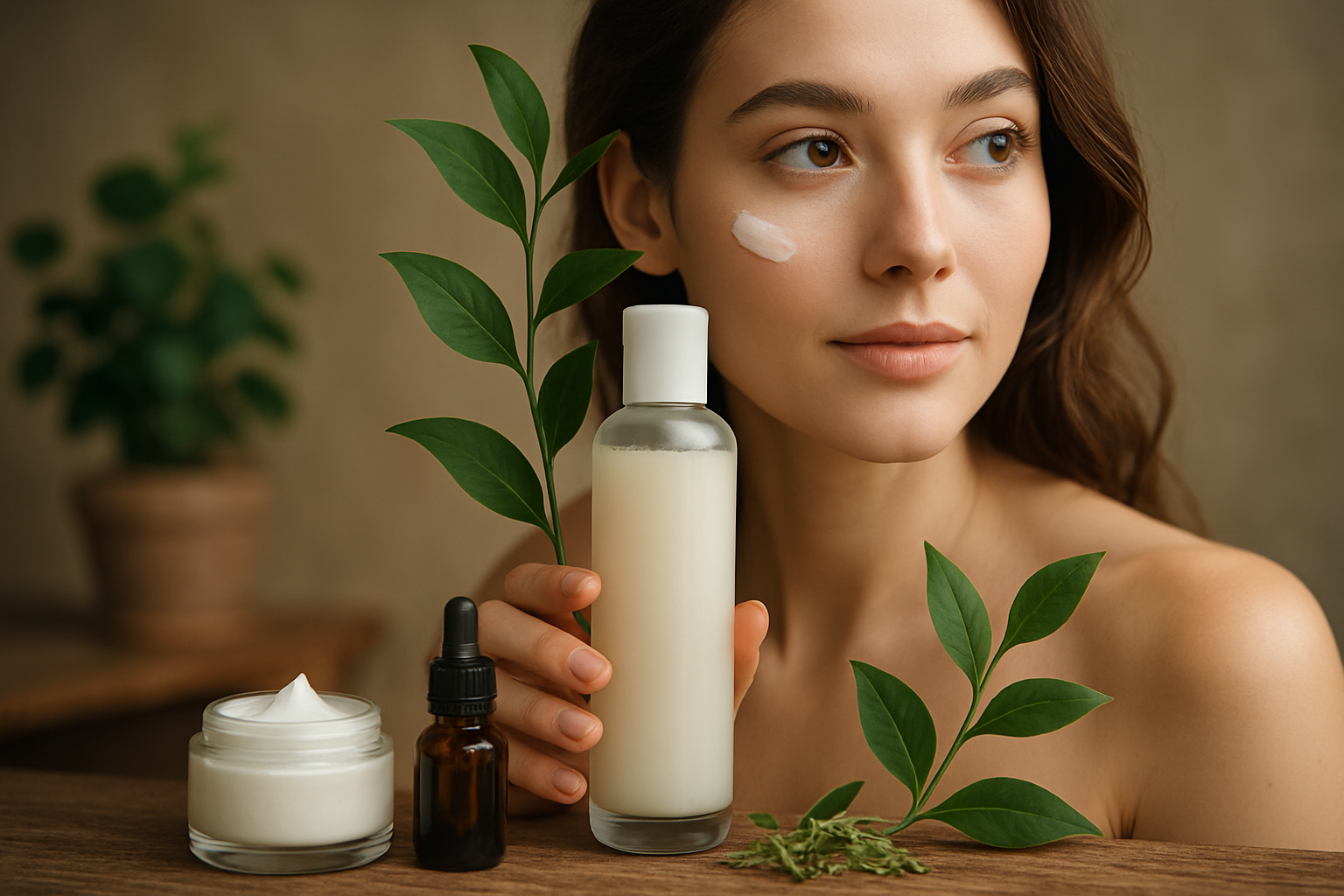Mycelium Skincare: Fungal Fermentation in Beauty
In the ever-evolving world of skincare, a groundbreaking innovation is taking root: mycelium-based beauty products. This fungi-derived breakthrough is revolutionizing the industry, offering sustainable, effective solutions for a range of skin concerns. Harnessing the power of nature's hidden network, mycelium skincare taps into the complex world of fungal fermentation to create potent, bioactive ingredients. As consumers increasingly seek eco-friendly and scientifically-backed products, this emerging trend sits at the intersection of cutting-edge biotechnology and age-old natural wisdom. From serums to moisturizers, mycelium is mushrooming into a key player in the beauty world, promising transformative results and a reduced environmental footprint.

The modern resurgence of mycelium in skincare began in the early 2010s, as researchers started exploring the bioactive compounds produced during fungal fermentation. This process, similar to that used in creating kombucha or kimchi, involves cultivating specific fungal strains under controlled conditions. As the mycelium grows, it produces a range of beneficial molecules, including vitamins, enzymes, and antioxidants.
Bioactive Brilliance
The true magic of mycelium skincare lies in its rich array of bioactive compounds. During fermentation, fungi break down complex molecules into smaller, more easily absorbed components. This process yields a treasure trove of skin-loving ingredients:
-
Beta-glucans: These polysaccharides are powerful immune modulators and moisture-binders, helping to soothe inflammation and hydrate the skin.
-
Kojic acid: A natural skin-brightening agent that helps fade dark spots and even out skin tone.
-
Tremella polysaccharides: Known for their exceptional moisture-retention properties, rivaling hyaluronic acid.
-
Antioxidants: Various mushroom species produce potent antioxidants that combat free radical damage and support skin repair.
-
Enzymes: Certain fungi produce enzymes that can gently exfoliate the skin, promoting cell turnover.
These compounds work synergistically to address multiple skin concerns simultaneously, from hydration and brightening to anti-aging and barrier repair.
Sustainable Beauty Revolution
Beyond its skincare benefits, mycelium represents a significant leap forward in sustainable beauty practices. Unlike traditional plant-based ingredients that often require extensive land and water resources, mycelium can be grown vertically in controlled environments, dramatically reducing the environmental footprint.
Moreover, mycelium’s rapid growth rate – some species can double in size every 24 hours – makes it a highly efficient source of raw materials. This speed, coupled with minimal resource requirements, positions mycelium as a potential game-changer in sustainable ingredient production.
Many mycelium-based beauty brands are taking sustainability a step further by using biodegradable packaging made from mushroom materials. This closed-loop approach minimizes waste and aligns with the growing consumer demand for eco-conscious products.
From Lab to Shelf: The Formulation Challenge
While the potential of mycelium in skincare is immense, formulators face unique challenges in harnessing its power. The delicate nature of many fungal bioactives requires careful extraction and stabilization processes to maintain their efficacy in final products.
Cutting-edge technologies, such as liposomal encapsulation and cold-pressed extraction, are being employed to preserve the integrity of these compounds. Some brands are even exploring the use of whole mycelium extracts, arguing that the synergistic effects of the entire fungal matrix offer superior benefits compared to isolated compounds.
Texture and sensory experience pose another hurdle. Fungal extracts can impart earthy scents and unusual textures that may not align with traditional consumer expectations. Innovative formulators are rising to this challenge, creating luxurious, sensory-pleasing products that seamlessly incorporate mycelium-derived ingredients.
The Market Mushrooms
As awareness of mycelium’s benefits grows, the market for fungi-based skincare is expanding rapidly. Industry analysts project double-digit growth for this segment over the next five years, with both niche indie brands and established beauty giants entering the space.
Early adopters of mycelium skincare tend to be eco-conscious consumers who prioritize natural, sustainable products. However, as more research emerges supporting the efficacy of fungal bioactives, the appeal is broadening to include performance-driven skincare enthusiasts.
The versatility of mycelium-derived ingredients is also driving market growth. From anti-aging serums and hydrating essences to protective moisturizers and brightening masks, fungi-based formulations are sprouting up across all product categories.
Future Growth: Cultivating Innovation
The future of mycelium in skincare looks promising, with ongoing research uncovering new applications and benefits. Scientists are exploring the potential of lesser-known mushroom species, each with unique bioactive profiles that could address specific skin concerns.
Advancements in biotechnology are also opening new avenues for mycelium-based ingredients. Some researchers are experimenting with genetically modified fungi to produce targeted skincare compounds more efficiently. While this approach raises ethical questions, it highlights the vast untapped potential of fungal fermentation in beauty.
As the field evolves, we can expect to see more personalized mycelium-based products. By analyzing an individual’s skin microbiome, formulators could potentially create custom blends of fungal extracts tailored to specific needs and concerns.
The rise of mycelium skincare represents more than just a fleeting trend; it’s a paradigm shift in how we approach beauty and sustainability. By harnessing the power of nature’s hidden network, we’re unlocking new possibilities for effective, eco-friendly skincare. As research continues and technology advances, mycelium’s role in beauty is set to grow exponentially, offering consumers innovative solutions rooted in the wisdom of the natural world.





